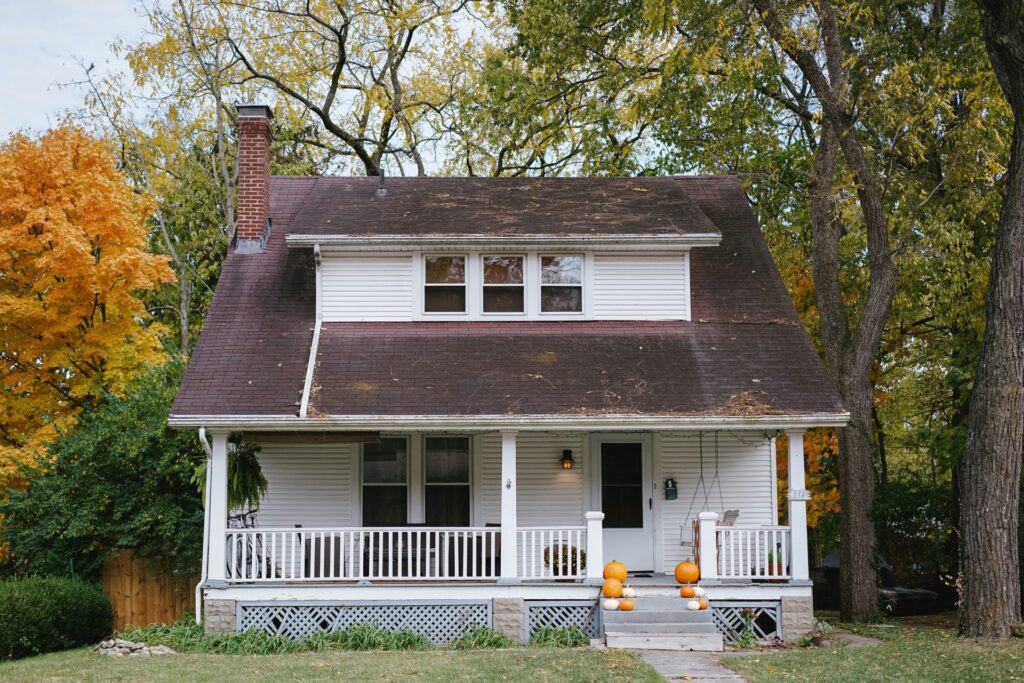Inheriting a home can feel like being handed a gift and a responsibility all at once. Suddenly, you’re in charge of a property you didn’t plan on owning, and that opens up a bunch of decisions that can feel overwhelming.
Do you sell it? Rent it out? Renovate and keep it in the family?
There’s no one-size-fits-all answer. It depends on your personal circumstances, financial situation, emotional attachment, and long-term goals.
Here’s what you need to know before you make your next move.
Step One: Understand What You’ve Inherited
Before anything else, it’s important to get clear on what you’re actually working with.
If you’ve inherited a house, there may also be other factors to consider, like:
- Outstanding mortgage – Is the home paid off, or is there still a balance to manage?
- Taxes – In some cases, you might owe inheritance tax or capital gains tax later on.
- Ownership – Are you the sole heir, or do you share ownership with siblings or others?
Getting the legal and financial details sorted should be your first priority. This may mean working with an attorney or tax advisor to make sure you’re not walking into any surprises.
Once the paperwork’s in order, it’s time to figure out what to do with the property itself.
Option 1: Sell It
Selling the home is often the most straightforward choice, especially if you don’t want to manage another property or you live out of state.
There are a few ways you can go about this.
Some people choose to list the home through a real estate agent and go through the traditional sales process. This can take some time, especially if the house needs repairs or upgrades first. However, if the market is strong, this route might bring in the highest return.
There’s also the option of selling to a cash home buying company, such as www.txcashhomebuyers.com. These buyers purchase properties as-is and close quickly, which can be a huge relief if you need to sell fast or the home needs work you can’t take on. This is a practical, low-stress route for many families dealing with inherited homes, especially if there are emotional ties or time constraints.
One thing to consider: if you choose to sell, you’ll need to decide whether to make any improvements first. Sometimes, a simple clean-up and minor updates can significantly increase a home’s value. Other times, it’s better to sell as-is and let someone else handle the renovations.
Option 2: Rent It Out
If you don’t want to part with the property just yet, renting it out can be a smart way to keep it in the family while generating income.
This option works well if:
- You’re not ready to sell, but don’t plan to live there.
- The property is in a location where rentals are in demand.
- You’re open to becoming a landlord or hiring a property manager.
Rental income can help cover the costs of taxes, insurance, and maintenance, and in some cases, provide additional profit each month.
But don’t underestimate the responsibility that comes with it. Being a landlord means dealing with tenants, repairs, and legal obligations. You’ll also need to make sure the home meets all local rental codes and is safe for tenants.
If you’re leaning toward renting but you’re new to the idea, speak with a property management professional or someone experienced in real estate. It’s a big commitment, but it can be a good long-term investment if managed properly.
Option 3: Renovate and Keep It
Maybe the home has sentimental value. Maybe you see it as a future family getaway or a place you could move into one day. In that case, renovating might be worth considering.
This path can be rewarding, but it requires time, money, and a clear plan.
Start by having the property inspected. You’ll want to get a sense of what needs to be done right away and what can wait. In older homes, there may be hidden issues like outdated wiring, roofing problems, or plumbing concerns.
Once you know what you’re dealing with, think about your goals:
Are you planning to live in the house?
Will it be a vacation home or a second property?
Are you fixing it up to sell later for a higher price?
Whatever your reason, go into it with your eyes open. Renovations can quickly go over budget if you’re not careful, especially if the house hasn’t been updated in a while. But if you have the time and resources, updating an inherited home can be a meaningful way to keep a piece of family history alive.
Emotional Ties Can Complicate Things
One of the most overlooked parts of inheriting a home is the emotional side of it. This isn’t just a property; it may be a place filled with memories, family traditions, and strong feelings.
These emotional ties can make the decision harder. It’s not unusual for family members to disagree on what to do with the home, especially when more than one person inherits it.
If you’re in that position, open and honest conversations are key. Try to separate the emotional side from the practical side. It’s okay to feel torn, but it’s also okay to make a decision that works best for your life right now.
Sometimes keeping the home isn’t realistic, and that’s okay. Selling doesn’t erase the memories.
Making the Right Call
An inherited home can be a gift, a responsibility, or sometimes both. Whether you decide to sell, rent, or renovate, the best decision is the one that fits your current reality, not what others expect or what you think you “should” do.
Think about what makes the most sense for you. Be honest about what you can manage, both emotionally and financially. And remember, there’s no wrong answer here; just the one that’s right for your situation.

